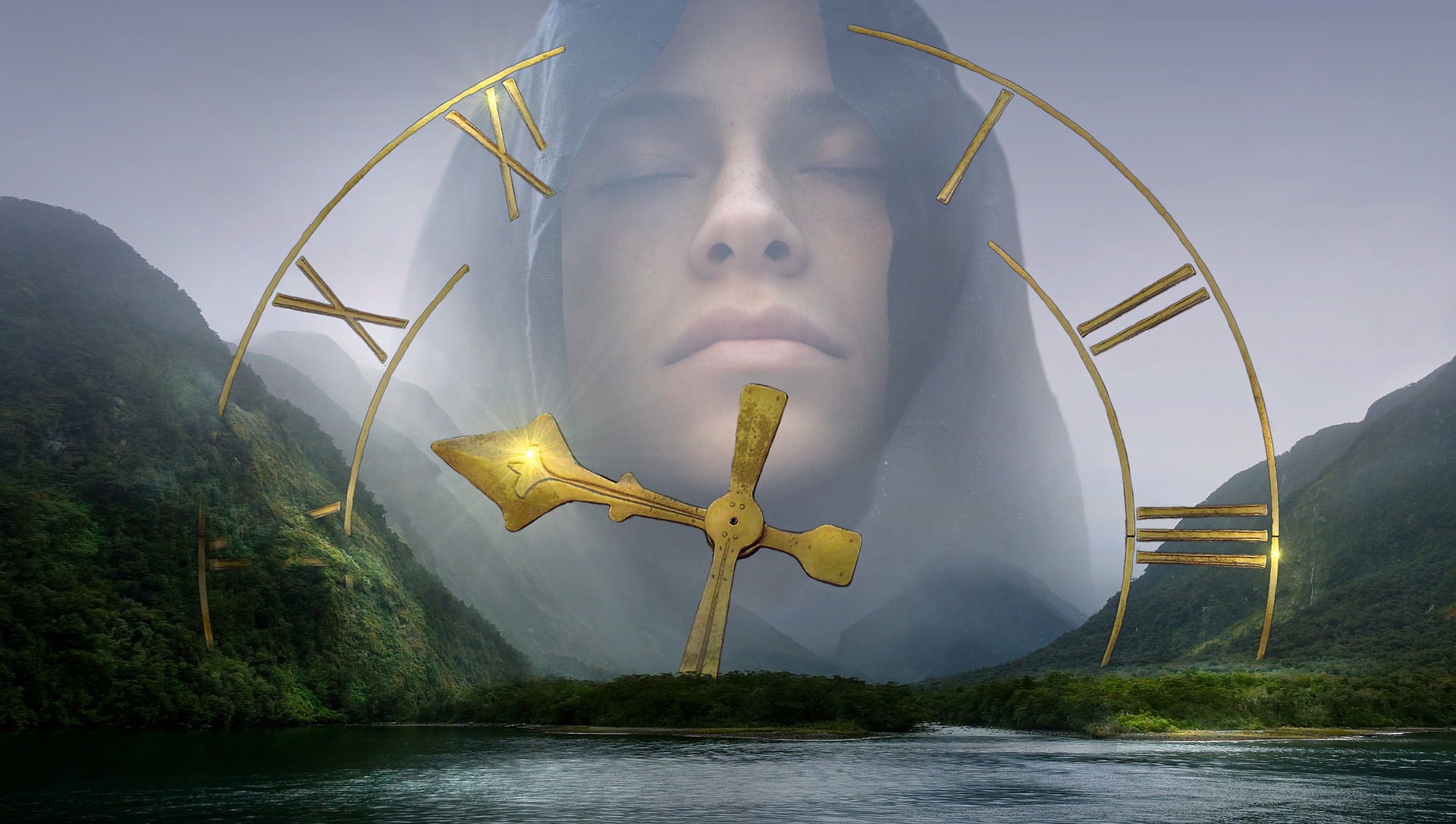 Submitted by Little Buddha on
Submitted by Little Buddha on

No matter where we live in the world, the chances are that our daily life is one of high-stress, exacerbated by external forces over which we have little or no control. This sensory overload gradually becomes sensory deprivation, in that we slowly become numb to the onslaught, either by choice or conditioning. The numbing not only threatens our relationships with family, colleagues and social communities, but also with our inner self. We become cut off from our innate knowledge and desires, and more easily succumb to media and social media’s dictates of who we should be — generally a fantastical creation that only exists in the delusional mind of cyberspace. Increasingly fatigued and demoralised, how do we resist falling prey to the opiates of the external world and instead rally as our own strongest advocates for our inner selves?
Hitting the wall
When stress and strife smack us in daily waves, we often find ourselves breathless, wrung out, desperate. Sometimes we hit the wall from sheer physical exhaustion, from a health, career or relationship crisis, a loved one’s needs that must be tended or the dark shroud of depression coming round again. As painful or extreme a state as this can be, it often is the only means of bringing us back to ground, where all we can manage are the most basic tasks — waking, bathing, eating, working, the bills, sleeping. As our dervish-like spinning is forced to slow down, the spaces between our thoughts likewise lengthen, no longer crammed with the second-and third-tier mental priorities to which we’ve become so accustomed.
Going inside
If we’re fortunate, thoughts normally relegated to the bottom of the pile begin to bubble up in those spaces. They may seem new, but more likely there’s something familiar about them. We sense they’ve been tucked away in a soft corner of memory, sleeping deeply while we’ve been working away so diligently at being busy. Thoughts such as, ‘Does this life of mine, as it is, truly feel right?’ ‘Do my relationships stimulate a sense of emotional, intellectual, spiritual kinship, or do I hang onto them out of insecurity and dependence?’ ‘How does my work reverberate deep inside my heart?’ ‘Why do I have so much disdain, and so little compassion, for my struggling self?’ Frightening, unnerving thoughts to ponder. No wonder we try to stuff them down, smother them with our daily thousand tasks, but...
Turning away
Why? Why do we feel so compelled to fill the space with white noise rather than turn to face the technicolour spectacle of our existence? When we know that continuing to turn away does nothing to relieve our bewilderment and pain? Why do we feign ignorance when if we’re quiet and honest for even a moment, we can see, feel, know, or at least have an inkling of what we truly want and who we truly are? Why do we choose to forget?
Filling the space
We fill the space, in part, because life goes too fast, and we just instinctively and doggedly try to keep up, panting and sweating all the while. We fill the space by fulfilling our responsibilities to others, which inevitably takes priority over our responsibilities to ourselves, pushing us further still from our internal world. We fill the space because of abundance, privilege, and luxury (relative, of course), which insidiously provide us with more consumer options with which to fill the space. We fill the space because our planet is jam-packed with human beings and the kinetic energy onslaught alone keeps us in autonomic system overdrive. The physical and mental cacophony by which we’re unrelentingly besieged makes it challenging to even think straight, let alone be devoted to honouring our true nature. Last and most sadly, perhaps we fill the space to block out fear.
Feeding the fire of fear
Fear is one of our basic touchstones, and one that is stoked vigorously by technology. The bar for what constitutes “basic necessities” is constantly inched up via media and social media insinuations and mandates that target our psycho-social-emotional vulnerabilities. The subtext of most advertising (and a good majority of social-media site posts — essentially the same thing) is: ‘This manufactured image of perfection is what you should aspire to, even though everyone knows you’re not worthy and never will be.’
In the current milieu, where most of us have been conditioned to think in terms of lack, this zeroes in on our deepest fears like a guided missile: ‘I’m not good enough. There’s something wrong with me. People will think I’m stupid. They’ll laugh. I’ll be rejected by my friends, my peers, my family. I’ll be alone. I’ll die.’ It’s mystifying that after so many decades of being manipulated by media, we’re well aware of how it works, yet it still succeeds. Time and again we fall for the same insane subliminal messages stoking our fears and self-doubt. This relentless fever, combined with the constant sensory assault of every day, generates and sustains a collective societal energy characterised by post-traumatic stress, paranoia and chronic fatigue.
Breaking the cycle
How then, can we break the cycle, become the radical advocates for our wearied and disenfranchised souls? How do we find our way back to remembrance of the beautiful, talented, loving, worthy human beings that we are? How can we replace competing with one another for an illusory enviable life, with loving, mutual support in our sorrows and our joys? And how can we remember all this not just for a brief moment, but live within this compassionate place every single day?
It starts by stopping. Whether triggered by one’s own alarm bells, or something of a less voluntary nature, it’s important to come to a full-stop. This creates a clear-cut visceral sense of change. A period of quiet should follow. A space that is ample enough to bridge the initial discomfort and the urge to flee back to the numbing fray. That fray, while painful in its own way, is also tempting by virtue of its comfortable familiarity.
Open-minded awareness
A sense of open-minded awareness is integral for this cocoon of time to give birth. Meditation is certainly a most auspicious approach, yet it is not the only path. Countless people have come to me, already resolved for a negative outcome, and said, “I’m not good at meditating. I can’t keep my mind blank.” While that statement begs volumes of response, I return to the point of open-minded awareness. This simply means being open to whatever happens during that quiet time — in our bodies and our thoughts — even if it’s non-stop obsession on a particular detail. To be aware of that obsession and to observe it as we might an insect crawling innocently on our windowsill is all our inner self asks.
However, our tendency is to criticize ourselves for our so-called weakness or imperfection in these early attempts at self-enquiry. This only bolsters our sense of failure and keeps destructive patterns in place. But practice begets progress. By making the effort to come back to awareness each time we stray, we cultivate a powerful tool: choice. Awareness empowers us to choose the fate of each thought, whether we ultimately absorb it as truth, reject it as false, or allow it to linger in indecision for the time being.
Even if we make a choice that does not serve our highest good, being aware of the choice we make in the very moment we make it opens space for self-compassion. When we can watch the mad pageant from a distance, we become the outsider, observing with impartial empathy. Often compassion wells up without warning, softening our harsh self-judgment and intolerance and allowing one’s true nature to gingerly emerge. Awareness, when practised kindly and diligently, inevitably begins to develop in the wild world of daily life, where it can be used as a coping tool in lieu of all the other addictive substances or habits we use to fill the space. With time and dedication, we find ourselves in the same sensorial barrage, but not of it.
We are not alone
This new sense of detachment or ‘otherness’ should by no means be construed as being alone in the endeavour. Knowing that we all experience similar fears and anxieties greatly diffuses the sense of shame and trepidation. When we can imagine that we are surrounded by multitudes of solidarity, it goes a long way to buoy our determination to move forward. Getting closer to our true nature involves separating the virtual wheat (the pure kernel of who we are) from the chaff (all the ingrained habits, thought patterns and beliefs that restrict our growth). This is achieved by finding the courage to turn toward the fear, imperfection, pain, ugliness, shame and guilt, rather than cowering from a purely imagined and terrifying outcome. It may seem catch-22 to attempt courage to vanquish fear. But courage in this case simply means willingness and humility. The willingness to explore a power greater than our mortal selves in order to face the oppressive shadows that drain our spirit and dim our light. Courage is: ‘I am willing. Please support me and guide me.’
Striving for imperfection
The last thing to consider is the relationship we have with this authentic self of ours. To expect it to be some sort of perfect, ethereal spiritual being, floating immunely through the world, defeats the purpose. The point is to live as flesh-and-blood human beings amongst the chaos and cacophony of modern times and yet retain an inner sense of calm, humour and equilibrium. Our true self is not a perfect self nor does it strive to be. It is our best incarnation of our self with whom we feel happy, loved, loving, healthy, peaceful, open, creative, confident, benevolent, curious, energetic and inspired. And when we don’t feel any or all of those things, we are still able to feel deep compassion and empathy for all the imperfect selves — ours and others — in this extraordinarily imperfect world.
Kelly Johnston
http://www.namahjournal.com/doc/Actual/Remember-Me-vol-25-iss-1.html
Kelly Johnston is an integrative health coach and consultant based in Mexico City. She hosts a website and blog at http://www.life-equilibrium.com
- 826 reads